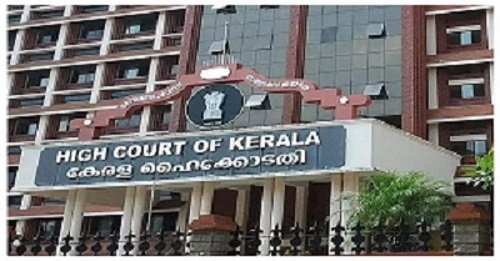News Date:
Kerala: The Kerala High Court recently held that every unmarried daughter has the right to get reasonable marriage expenses from her father irrespective of her religion.
A division bench of Justices Anil K Narendran and PG Ajithkumar opined that the this right cannot be given any religious shade.
“The right of an unmarried daughter to get reasonable expenses concerning her marriage from her father cannot have a religious shade. It is a right of every unmarried daughter irrespective of her religion. There cannot be a discriminatory exclusion from claiming such a right based on one’s religion,” the bench said in its judgment.
The judgment was issued on two petitions filed by two unmarried daughters of the respondent-father.
The petitioner-daughters had moved a family court seeking realisation of ₹45.92 lakhtowards their marriage expenses as well as a decree creating charge for the said amount on the schedule property of their estranged father
They also sought a temporary injunction restraining their father from alienating the property which they contended had been purchased with financial help from their mother and her family.
The family court, holding that the petitioners were entitled to claim only the minimum required expenses for the marriage, held that an attachment for an amount of ₹7.5 lakh would be enough to protect their interest.
Before the High Court, the petitioners challenged the family court’s order contending that the status of the parties were not taken into account while fixing ₹7.5 lakh as the amount required to meet the expenses of both their marriages.
They pointed out that both of them are pursuing higher studies and their father had not helped them in any manner with the expenses incurred.
Their father on the other hand maintained that the property and the building in it absolutely belong to him and he was not liable to pay any amount to his daughters.
He further argued that his daughters and their mothers are Pentacost Christians and that community does not believe in using ornaments. Therefore, the expenses for gold ornaments usually incurred for marriages would not exist in the case of his daughters, he contended.
The primary question before the High Court was whether there was any legal provision entitling a Christian daughter to realize marriage expenses from the immovable property of her father or the profits from the property.
The Court noted that insofar as a Hindu daughter is concerned, there is an enabling statutory provision in Section 3(b) of the Hindu Adoptions and Maintenance Act, 1956 regarding payment of reasonable expenses of and incidental to the marriage of an unmarried daughter
It also noted that in Ismayil v Fathima & Anr., the Kerala High Court considered the question whether a Muslim father has an obligation to pay expenses in relation to the marriage of his daughter. A division bench of the Court had considered that question in its generic perspective and held that not only a Muslim father, every father irrespective of religion has such an obligation.
“We unhesitatingly agree with that view,” the Court said.
The Court then observed that as per Section 39 of the Transfer of Property Act, when any person has a right to receive maintenance, or a provision for advancement or marriage from the profits of immovable property, that claim can be enforced against the immovable property of the person obliged.
The petitioner-daughters are, therefore, entitled to claim a charge on the immovable property of their father, the Court stated.
However, the Court said that once the property has been attached, there is no justification to claim the equitable relief of injunction.
As far as amount of money required to meet expenses, upon considering the pleadings and the material on record, the Court decided that an attachment to secure an amount of ₹15 lakh would be sufficient to protect the interest of the petitioners.
The petitioners were represented by advocates Jacob Sebastian, KV Winston, Anu Jacob and Divya R Nair.
The respondent was represented by advocates Shyam S and NK Karnis.



